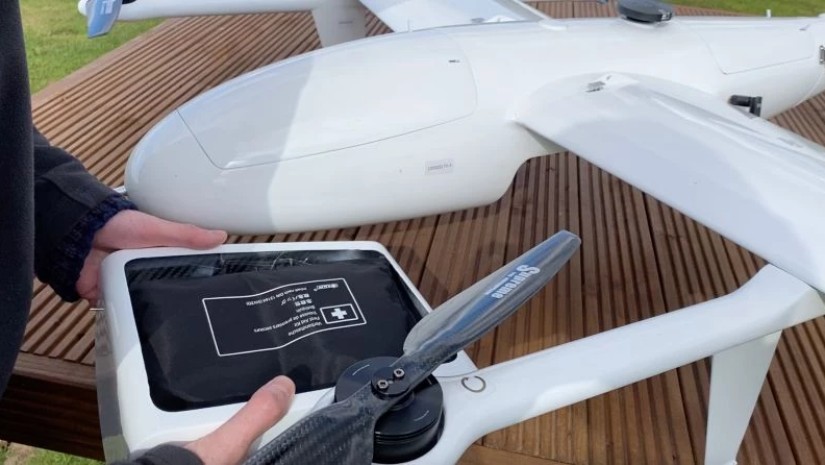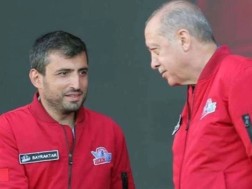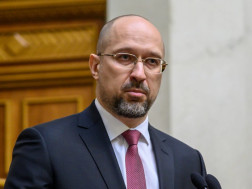Every groundbreaking leap that changes the world starts with a great vision and an unshakable belief in turning that vision into a reality – this is the belief that the people behind Missiya hold dear to their hearts.
Missiya is a Georgian aerospace company designing and manufacturing unmanned aerial vehicles and drones. Today, Missiya’s products are redefining industries. Professionals in various government sectors, agriculture, conservation, search and rescue, and energy infrastructure put their trust in Missiya to bring new perspectives to their work and help them accomplish feats safer, faster, with greater efficiency, and simpler than ever.
“Drone is a smart unmanned aerial vehicle with a particular mission - to fulfill any task given to it – Nodar Khidisheli - Missiya, Sales Manager explains to BMG - We are on a mission to make unmanned aerial vehicles accessible to everyone. For this, our drones have been adapted to routine everyday tasks”.
Missiya’s research and development team works around the clock to keep innovating, trying, and testing new products to challenge the status quo. As the engineers say, having an advanced and capable product line requires years' worth of complex engineering, testing, and trial. Yet, in the end, it all pays off.
M22-Q1, codenamed Mimino - Georgian for Eurasian sparrowhawk - as they say at Missiya, this drone can do anything that one would want from an industrial unmanned aerial vehicle. It resembles the company’s vision, too. M22-Q1 is easy to operate and is highly customizable, making it ideal for firefighting, search and rescue, recreational and corporate operations.
“Our drones are equipped with thermographic cameras, allowing us to perform rescue operations in various landscapes, day or night” – Khidisheli explains further.
M22-Q1 is a reliable and durable drone that could be used in the mountains, at sea, over the road, or any industrial area, and, of course, in the forest. The drone’s versatility, of course, is enabled by technology.
“Our drones are not limited to discovery. We can talk through it and deliver and recover the cargo. We are not sole observers but active participants” - Davit Nakashidze - Missiya, Engineer tells BMG.
As they say at Missiya, the safety of the drone is ensured by a 360-degree lidar and height sensor, ensuring real-time information about the drone’s condition and obstacles around it. There is no drone like it in the world, they say.
“What makes it different is the flight time, maximum payload capacity, and versatility. No other drone is as versatile as ours” Khidisheli explains, followed-up by Oleg Babetski - Missiya, Chief Engineer: “Our drone is equipped video tracking system, a cargo delivery system, and a loudspeaker, but honestly, the only limit to these - is our imagination”.
Headquartered in Tbilisi, Georgia, Missiya benefits from direct access to the international suppliers and young, creative talent pool necessary for sustained success. These people are pushing the boundaries of what is possible not only in Georgia, but beyond.
“There was a public procurement tender in the United Kingdom that we wanted to partake in – Nakashidze remembers - It was the spark that enabled us to create the initial concept. We thought about what this drone should have been capable of. We are ambitious enough to participate in public procurement tenders, as our drone could easily compete with others”.
Another advantage that Missiya’s unmanned aerial vehicles offer to their customers is MGround Control - an in-house software programmed to be as easy to operate as possible. Yet, with the software comes constant customer support that Missiya’s clients receive whenever it’s needed.
“We are responsible for our drones, and if there is anything we have to repair that is due to our fault, we will take care of it. It is not limited to technical support but includes personnel training, too” – Nakashidze maintains.
As for the future, Missiya aims to expand in the Georgian market and launch serial production. Thus, quite soon, Georgia could transform into a regional drone-manufacturing hub.
“The global market for drones is valued at around 20 billion dollars and is projected to grow by 13% by 2030. It is a humongous industry that Georgia must partake in” – Khidisheli says.
With the investor backing up the idea, Missiya’s first factory may not be far ahead. As they say at Missiya, this will enable the company to produce more drones and allow many Georgian engineers to fulfill their goals in Georgia and not elsewhere.
“Will there be demand we would build a factory - this is what we agreed upon with our investor. The only thing we need is a tangible demand” – Nakashidze adds.
As technology advances, the possibilities for drone use will continue to expand, serving various interests of hobbyists and commercial users.
“Our drone is equipped with a video tracking system, a cargo delivery system, and a loudspeaker, but honestly, the only limit to these - is our imagination” – Babetski explains.
This is a hybrid unmanned aerial vehicle that Missiya’s engineers are developing and testing. In a few weeks, it will fly from Batumi to Tbilisi at 85 kilometers per hour. It has five engines, four of which are vertical thrust engines allowing the drone to take off vertically, without a runway.
“It’s a prototype that allows us to test particular technologies. The most important is 4G - technology allowing us to transmit video and, in case of an emergency, allowing us to take control of the vehicle in real time – Nakashidze tells BMG - Wherever the network is stable, the drone will communicate with us and transmit real-time video”.
In recent years, drones have emerged as a breakthrough technology. These unmanned aerial vehicles have created various opportunities in numerous industries, from delivery and surveillance to photography and filmmaking. Drones are redefining how people do things. Their compact sizes and autonomous flight capabilities offer novel viewpoints allowing data collection in challenging environments. The possibilities for drone use will continue to expand, creating a unique opportunity. It is this opportunity that Missiya is taking upon - a chance worth billions. Yet, it is not money that motivates Missiya. The love of flying in the skies was where it all began. It was a hobby, they say. A hobby turned into a business.
















